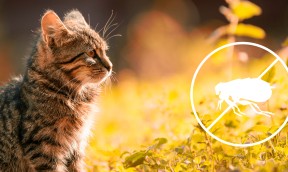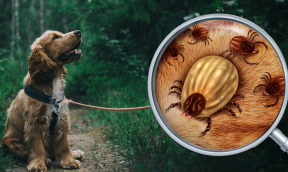
Alternatives to target external parasites
Methods other than chemical insecticides and external antiparasitic medications are available to target external parasites.
What are the alternatives?
For animals: two types of products may be used to limit the risk of parasite infestation:
Insect repellents*: unlike insecticides, these are products which keep external parasites (fleas, ticks, sandflies) away instead of killing them. They are an “insecticide-free” alternative and are formulated using plant extracts with repellent properties (margosa and/or feverfew and/or lavender). Francodex offers several formats for every situation (spot-on pipettes, collars, shampoos, powder or lotions).
Food supplements: these products aim to use plant extracts (hops, etc.) to strengthen your pet’s skin barrier and make it less vulnerable to parasites.
For the environment:
Insect repellents*: repellents for your pet’s environment are also available (spray, diffuser, insect repellent granules)
NB: insect repellents and food supplements do not have a lethal action on parasites. If your pet already has a parasitic infestation, the use of external antiparasitic veterinary medicines for the animal and others pets and environmental insecticides is strongly recommended.
How do I choose between an insecticide (environment or medication) and an insect repellent, as a preventive measure?
If your pet is in a low-risk environment (a few walks in the forest, other pets also treated, low season, etc.), you can opt for preventive measures using insect repellents. However, if your pet is in a high-risk area (large tick population, plenty of outings, numerous other pets, fleas in the environment, etc.), the use of external antiparasitic veterinary medicines and environmental insecticides is recommended instead.
*Biocide class PT19: biocides should be used with caution. Read the label and product information before use.
**Biocide class PT18: biocides should be used with caution. Read the label and product information before use.
















